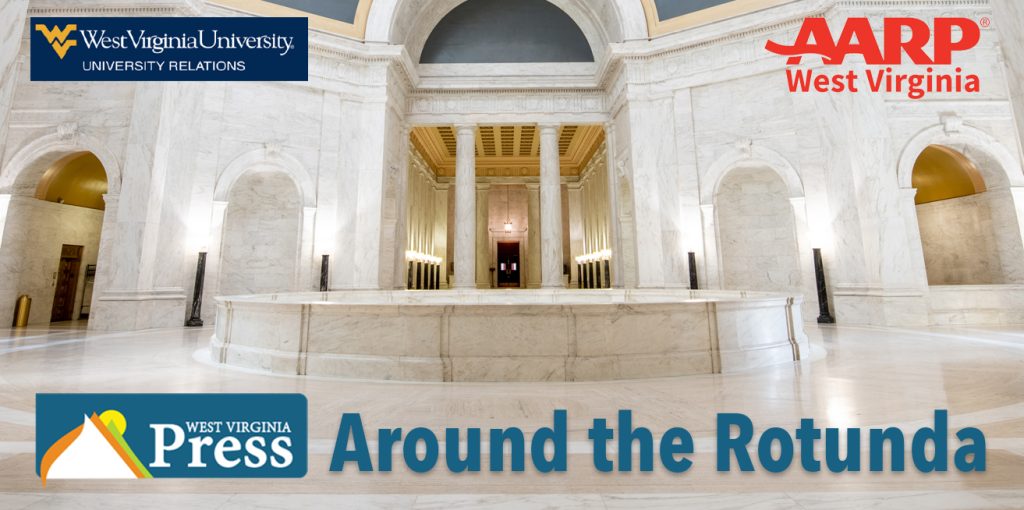By Autumn Shelton, WV Press News Service
Charleston, W. Va. – The Senate Energy, Industry, and Mining Committee has moved along a bill designed to incentivize rare earth elements acquired through the treatment of acid mine drainage.
According to counsel, who spoke during the committee’s Thursday meeting, House Bill 4003 would add a new section to the Abandoned Mine Lands and Reclamation Act. It contains three legislative findings which state “that the treatment of acid mine drainage reduces its environmental harm, that the treatment of acid mine drainage produces materials that may contain value and various parties may elect or be compelled to treat acid mine drainage.”
Counsel explained that research conducted by those at West Virginia University, and others, has “successfully removed what are known as rare earth elements from coal mine waste.”
Information found on the West Virginia Water Research Institute’s website, states that rare earth elements are “essential for many high technology products such as rechargeable batteries, high performance magnets, medical equipment, and many defense applications,” adding that China currently produces more than 90% of rare earth elements.
The bill goes on to declare that the Department of Environmental Protection would be authorized to “remove, sell or transfer” the elements for the purpose of commercial benefit. The funds obtained would then be placed into one of two already existing revenue funds – the special reclamation water trust fund and the acid mine drainage set aside fund. Any entity that wishes to remove the materials will be able to sell them “for its own benefit,” counsel concluded.
The bill, originally introduced through lead sponsor Del. Riley Keaton, R – Roane, was passed by the House on Feb. 7 with only one nay vote before being introduced to the Senate. A strike and insert amendment clarifies that the bill will not affect any existing contract or a party’s ability to enter into an agreement for the sale or transfer of elements.
In other committee business, members discussed the engrossed committee substitute version of House Bill 4098, introduced by lead sponsor Del. William Anderson, R-Wood, and passed by the House on Feb. 10.
This legislation would create new articles in Section 22 of the West Virginia State Code relating to environmental resources, counsel stated. The bill defines geothermal energy development and gives the Department of Environmental Protection the jurisdiction to enforce the rules of the new article, “except for geothermal heating and cooling heat pumps systems for private residential dwellings and farm buildings.”
According to the bill, the department would be tasked with developing a geothermal permitting system to allow for the “exploration and development of geothermal resources.” They would also “establish minimum temperature levels and volumetric flow rates” for permitting, well regulations and reservoir management.
The bill also sets out ownership rights by stating that the surface property owners over the geothermal resource will maintain ownership rights, unless separation of those rights is clear.
Following counsel’s explanation of the bill, Sen. Michael J. Romano, D-Harrison, asked for clarification of terminology used in the bill.
Jason Wandling, general counsel for the Department of Environmental Protection, took the stand to answer the Senator’s questions.
“I’ve got no problems with the bill,” Romano began. “I’m confused as to why we use terms like aquifer, pool, reservoir, to describe geothermal resources and then, clearly incorrectly, go down and say it doesn’t include mineral or water.”
Wandling responded that the distinctions in the bill were designed to ensure that the bill “won’t affect anyone’s mineral rights or the rights to water.” He said it’s the heat from the water in the aquifer that is important for this bill.
He explained that a hole is drilled down into an aquifer – an underground injection well. The water is then brought back up through a closed circuit pump, the heat removed, and the water is delivered back into the aquifer.
Romano responded that he believes the language is “contradictory,” but he will go with counsel’s recommendation.
In response to questions from Sen. Dave Sypolt, R – Preston, regarding water disturbance and financing, Wandling stated that the water in a closed loop system is not disturbed, and that his department will not require any additional revenue should the bill pass.
“We also don’t expect there to be a lot of this kind of work, at least not for the foreseeable future,” Wandling said, noting that the “major hot spots” are near Morgantown and “that’s about it.”
Committee members voted to move the bill with the strike and insert amendment, included for technical clarification, to the floor. It is now before the Senate Judiciary Committee.
The committee also moved to pass House Bill 4758, which would allow the Department of Environmental Protection to “develop and maintain a database to track existing reclamation liabilities including water treatment at coal mining operations permitted after Aug. 3, 1977.”
Lastly, committee members voted to approve Originating Concurrent Resolution 2 urging the current administration to open federally leased lands for gas and oil.
Following debate on a proposed amendment to the resolution brought by Sen. Mike Caputo, D – Marion, which removed “the Biden administration” from the resolution in favor of “the current administration,” the amendment was approved by a 7-5 vote.






